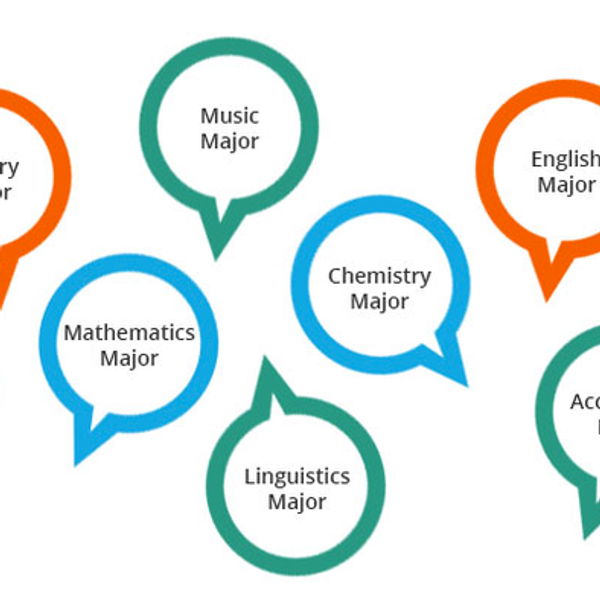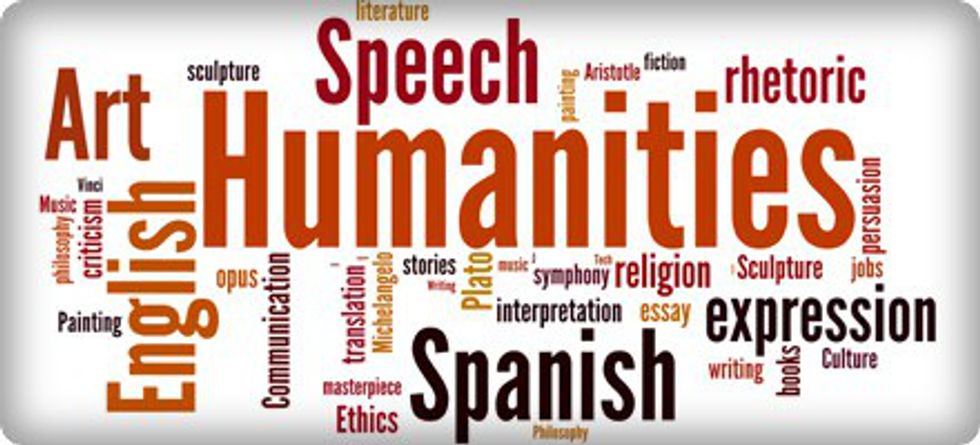STEM vs. Humanities/Social Sciences (etc.)- Can we bridge this divide? Can students successfully study both? Why would they even try?
Often with college, we make a distinction between people majoring in the sciences and those majoring in more liberal arts humanities and social science type subject areas. If you major in English, Political Science, History, International Studies, Economics, and the like, you are in one camp. Often, business and teaching majors are thrown into this large group. The other major camp includes those majoring in the STEM fields. Does this division have to exist? Is it really meaningful? Now, by this I don't mean that each "group" doesn't interact with the other, although this is somewhat the case. What I am getting at is simply that people feel that they have to choose. Their life path has to be made as to choose whether to be a STEM person or not. This is wrong. I am personally a double major with Geology (B.S.) and International Studies (B.A.) You can do both.
So why does this division even exist in the first place? I would argue this starts in high school or even before. People seem to often be tracked into taking more AP sciences or mathematics courses and others are "tracked" to take more advanced classes in histories and English courses. Teachers often encourage this focus into one of the areas. People believe that their strengths will be better utilized in one of the two major areas.
Additionally, people tend to gravitate towards the area they perform better in. Those who have natural capability in mathematics or science and somehow score well on Calculus and Chemistry exams are encourage by teachers, peers, and families to pursue those fields. After all, aren't the STEM fields in high demand? Aren't the salaries relatively high? Don't many schools and organizations offer funding for STEM majors? It is a natural reaction for students with ample capability in these fields to feel responsibility or obligation to enter into these STEM type majors.
On the flip side, some people are great at writing essays. They seem to love history and don't really do so well in mathematics. These people are often "relegated" to the non-stem major fields. They are encouraged to focus on their writing and reading skills. Their goals are defined more vaguely. Often times, parents and students themselves are wary, it seems, about studying these fields due to "lack" of reliable employment or prospects.
I have failed to mention to this point the role of passion and interest. Yes, they play a huge role and shouldn't be overlooked in the slightest. There are times when people truly are only passionate about Chemistry, for example, and happen to be good at it as well. These people should pursue chemistry, obviously. Others love reading and writing and happen to be good at it. They should maybe pursue English or something similar.
But what about students that are great at writing but are more passionate about something like calculus? What about someone who understands every scientific class they've ever taken, but have more of an interest in American history? Also, what about those that want to pursue both a STEM field and another?
These people I firmly feel are often overlooked and encouraged to enter one or the other. You can't do both after all. The classes won't line up. The course work will be too difficult. You won't be focused. How much of this is true?
You can do both. As I said before, I do. The class scheduling will be difficult, especially if you attend a small school. This is unavoidable. However, where there is a will there is a way. You can indeed take two majors that are totally unrelated and combine them. Focus is not an issue if you firmly are interested in pursuing both fields. Find advisers in each that will be supportive and helpful.
But why would you do this? Beyond the fact that you have interest and/or capability in both, there is much reason. You can be more marketable for graduate school and employment. Not only will it be shown that you put the effort in to earn two degrees, it will show that your capabilities and drive is complex and varied. Your skills cross over a wide range of topics. You have the benefit of having learned a breadth of skills and topics from your humanities or social sciences degree will having the skills in a more focused area of a STEM field. Employers and graduate schools could look at this with great pleasure. Additionally, it opens your mind to a more varied area of study. I have only started on this "journey", but it have given me a much wider perspective of study than if I had only picked one area. Additionally, if you are worried about career prospects, adding a STEM major with which you have interest can be a huge help. And, like is made for the argument of any double-major, you can get the most "bang for your buck" of your college experience.
Every time I tell someone what I'm studying in college they ask questions like, "Why did you choose those two?" or, "Those are really different, aren't they?" or, "That must be near impossible." Don't listen too much to criticism. Know that it will be work, as I am starting to find out, but not as bad as you may think, depending on what majors you end up choosing. Don't just do it because you can, do it because you want to and you can, and it should pay off.
























